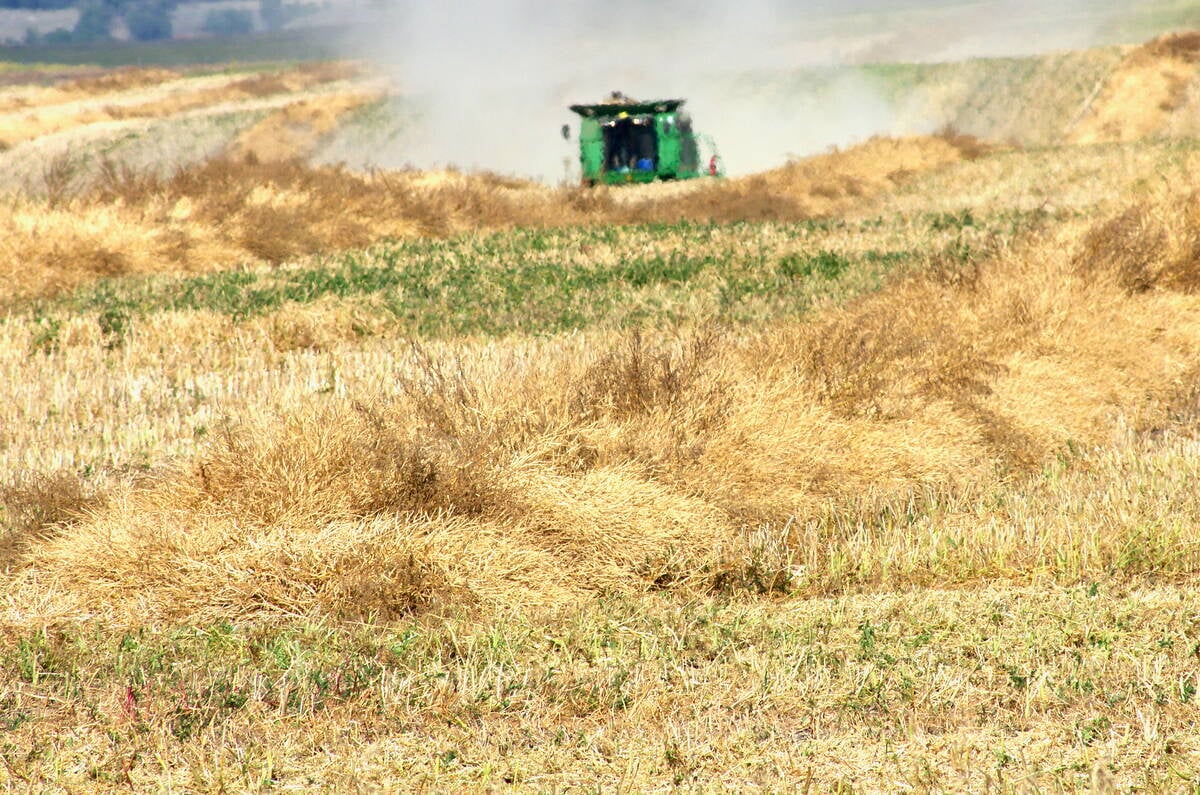Bill Homans helped out a neighbour three weeks ago by hauling 13 of the neighbour’s steers to the auction market in Fort Macleod, Alta.
He got a $354 ticket for his trouble.
It wasn’t the first time the rancher from Pincher Creek, Alta., has hauled cattle for others, and his neighbours sometimes haul for him. He said it’s common practice for ranchers to haul a few head of each other’s cattle for short trips if they don’t have enough trailer capacity themselves or if timing is an issue.
Read Also

Manitoba searches for Plan B on canola oil exports
A new report explores Manitoba’s current canola oil trade and possible alternative markets to the U.S.
But on this trip, the department of transportation issued him a ticket for “operating a commercial vehicle in a prohibited manner” and “unauthorized operation of a vehicle with farm plates for commercial purposes.”
Now Homans wonders whether the ticket signals a warning to other ranchers who help each other out in similar fashion.
Homans was driving his truck and stock trailer and following the owner of the cattle, who had more steers in his own truck and trailer. An officer pulled him over near the auction market.
“At that time I had no idea what I’d done wrong,” he said Nov. 8.
He produced his licence, registration and the manifest, which proved to be in order, Homans said.
“The brand inspector basically indicated that the manifest was made out correctly, it was fine. And I heard the officer tell him, ‘that may be, but he doesn’t own the cattle’.”
His truck had farm plates and marked fuel, but the officer was unable to obtain a fuel sample, Homans said.
“I asked him right then and there, what’s going on here? This is starting to make me feel a little uncomfortable. He said ‘we have had a few complaints that you farmers are hauling cattle for each other’.”
Alberta traffic regulations specify that farmers can legally transport animals owned by someone else to or from a grazing lease, so long as no compensation is involved. It makes no mention of hauling someone else’s cattle elsewhere.
Homans speculated that commercial livestock haulers might take issue with frequent hauling for other people but occasional neighbourly favours shouldn’t be a problem.
Sgt. Arthur Anderson of commercial vehicle enforcement in Lethbridge said he could not comment on specifics of Homans’ ticket. However, he noted a number of traffic regulations might apply in such cases.
“Even if no compensation is involved, it’s still deemed to be a commercial operation hauling somebody else’s goods. The compensation here doesn’t have to be monetary. It can be, ‘I help you now, you’ll help me later’.”
There are also laws involving appropriate use of farm plates and marked fuel, Anderson said. He added that there have been no changes in laws or enforcement of the regulations.
“It’s not a change in policy or direction. Its just a standard situation when we come across something.”
The matter has raised concerns in the southern Alberta ranching community. Pincher Creek rancher Bob Westrop raised it at an Alberta Beef Producers zone meeting in Fort Macleod Nov. 1.
Cattle producers then passed a resolution directing ABP to investigate and report on regulations regarding “goodwill” trucking of livestock.
“Neighbours can’t help neighbours anymore,” said Westrop in speaking to the resolution. “That just drives me crazy.”
Westrop, who is a purebred cattle breeder, said in a later interview he is now concerned about delivering bulls to customers. Typically, purebred bulls are taken to a sale, purchased by another party, and then the original owner takes them home again for later delivery.
Now Westrop wonders if he can legally deliver the bulls to his customer, since they are technically no longer his.
Dave Moss of Alberta’s Livestock Identification Service said ranchers can haul other people’s livestock so long as the manifest indicates the true owner and the transporter in the proper spot.
“He’s more than welcome to load a producer’s livestock with that manifest and that producer’s information on that manifest, but the manifest should be written by the owner of the livestock and the transporter would be this other rancher’s name,” said Moss.
“There is a place on the manifest further down below where you put the transporter’s name.”
Moss didn’t know the specifics of Homans’ case but noted there are a number of regulations that could have been involved in the ticket. No regulatory changes regarding livestock hauling have been noted or requested by LIS, he said.
“I go back to the common sense rule. Ranchers have got to help each other out on a daily basis. We shouldn’t stand in the way of that.”
Homans hasn’t paid his ticket yet but he figures there is no way out of it. He has looked into the permitting process described to him by the ticketing officer but doesn’t think it would suit his or other ranchers’ needs.
“We need to do something with this law because it’s not right,” he said. “Right now I don’t dare haul because I seem to have a target on my trailer.”















